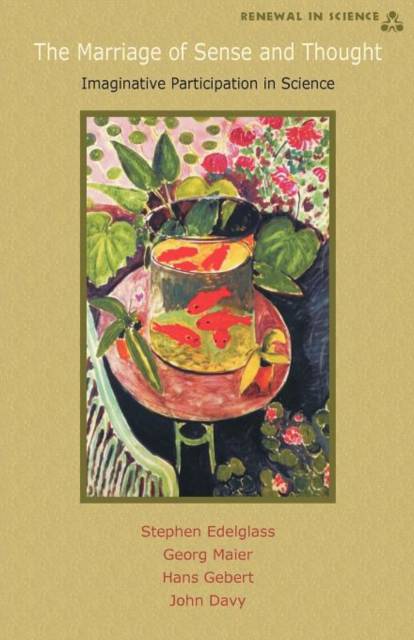
- Retrait gratuit dans votre magasin Club
- 7.000.000 titres dans notre catalogue
- Payer en toute sécurité
- Toujours un magasin près de chez vous
- Retrait gratuit dans votre magasin Club
- 7.000.0000 titres dans notre catalogue
- Payer en toute sécurité
- Toujours un magasin près de chez vous
The Marriage of Sense and Thought
Imaginative Participation in Science
Stephen Edelglass, Georg Maier, Hans Gebert, John DavyDescription
Having imagined a machine-like world, scientists now haunt this machine uneasily. Their plight is paradoxical: they have realized their world only through intense mental effort, yet this effort finds no legitimate place in the world it so painstakingly comprehends. It seems "objectivity" comes only at a cost. Why, for example, is science unable to describe a smile? Why is the moral life of a physicist regarded as one's own private affair?
This exclusion of human qualities from science has both practical and theoretical consequences. If we systematically imagine a world in which human beings do not exist, we will eventually create a world in which they cannot exist.
Reclaiming the human sources of scientific insight, the authors of this book restore scientists to the world given by science and celebrate the joyous marriage of sense and thought.
"Scientists see the world as a machine, which they haunt like ghosts. Since the idea of a detached observer seems to call for attentiveness, but otherwise for no mental work, the scientist is actually a rather passive ghost. Yet one of the experiences common to all scientists is that of intense mental work--indeed, work that takes place within the mind, the very realm with no existence in the objective universe." (from the book)Spécifications
Parties prenantes
- Auteur(s) :
- Editeur:
Contenu
- Nombre de pages :
- 160
- Langue:
- Anglais
Caractéristiques
- EAN:
- 9781584201069
- Date de parution :
- 20-09-11
- Format:
- Livre broché
- Format numérique:
- Trade paperback (VS)
- Dimensions :
- 140 mm x 216 mm
- Poids :
- 208 g

Les avis
Nous publions uniquement les avis qui respectent les conditions requises. Consultez nos conditions pour les avis.






